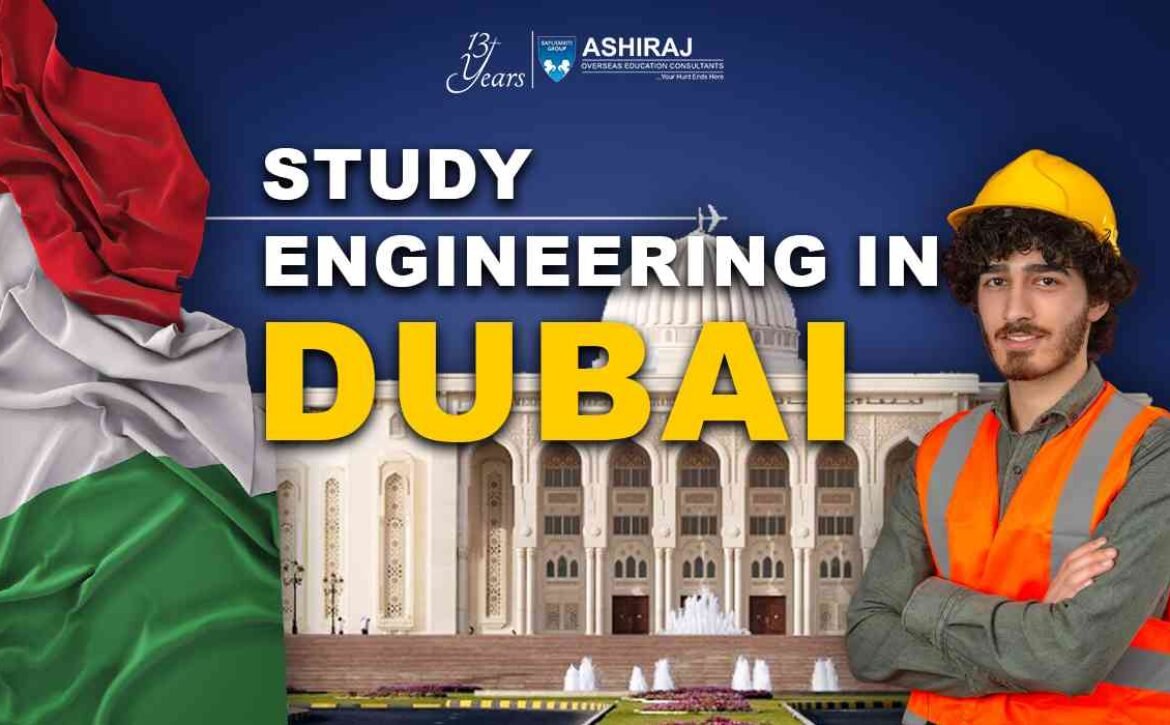
Engineering in Dubai
Engineering in Dubai encompasses a dynamic landscape of innovation and construction, epitomizing the city’s futuristic ambitions and relentless pursuit of excellence. With its towering skyscrapers, state-of-the-art infrastructure, and groundbreaking projects, Dubai stands as a beacon of engineering marvels in the Middle East. The emirate’s engineering sector is a testament to its unwavering commitment to push boundaries and redefine what is possible in urban development and technological advancement.
In recent years, Engineering in Dubai has witnessed unprecedented growth, fueled by visionary leadership, strategic investments, and a collaborative ecosystem of global talent. From iconic landmarks like the Burj Khalifa and Palm Jumeirah to ambitious initiatives like the Dubai Metro and Expo 2020 site, engineering expertise has been instrumental in shaping Dubai’s skyline and enhancing its position as a global hub for commerce, tourism, and innovation. As Dubai continues to chart new frontiers in sustainable development and smart infrastructure, the role of engineering remains paramount in realizing the city’s aspirations for a brighter, more prosperous future.
Why to Study Engineering in Dubai?
- Global Hub of Innovation: Dubai is renowned for its cutting-edge infrastructure and ambitious projects, providing students with exposure to groundbreaking engineering developments.
- Diverse Learning Environment: Studying engineering in Dubai offers a multicultural experience, with students from around the world bringing unique perspectives to the classroom.
- Abundant Opportunities: The city’s rapid growth translates into a high demand for engineering professionals across various sectors, offering ample opportunities for internships and employment.
- State-of-the-Art Facilities: Dubai’s universities boast modern facilities and laboratories equipped with the latest technology, fostering hands-on learning and research opportunities.
- Industry Connections: Engineering programs in Dubai often have strong ties with industry leaders, providing students with networking opportunities, internships, and potential employment prospects.
- Strategic Location: Situated at the crossroads of Europe, Asia, and Africa, Dubai offers a strategic location for engineering students to explore diverse cultures and gain global exposure.
- Thriving Economy: Dubai’s thriving economy and business-friendly environment create a conducive atmosphere for engineering graduates to launch successful careers.
Studying engineering in Dubai equips students with the skills, knowledge, and experiences needed to thrive in the dynamic field of engineering while contributing to the city’s vision of innovation and progress.
Top Universities to Study Engineering in Dubai
University | QS World University Ranking 2023 | Type of University | Average Annual Fees (USD) | Programs Offered |
1. Khalifa University | 401-410 | Public | $15,000 – $25,000 | Aerospace Engineering, Civil Engineering, etc. |
2. American University | 651-700 | Private | $20,000 – $30,000 | Mechanical Engineering, Electrical Engineering, etc. |
3. University of Dubai | 701-750 | Private | $15,000 – $20,000 | Computer Engineering, Industrial Engineering, etc. |
4. Heriot-Watt University | 801-1000 | International Branch | $25,000 – $35,000 | Petroleum Engineering, Structural Engineering, etc. |
5. Manipal Academy | Not Ranked | Private | $15,000 – $25,000 | Electrical & Electronics Engineering, etc. |
Engineering in Dubai is an exciting prospect, and the city hosts several top-notch universities offering diverse engineering programs. Khalifa University, a leading public institution, is known for aerospace and civil engineering. The American University, a private institution, provides programs in mechanical and electrical engineering. The University of Dubai, another private university, offers computer and industrial engineering. Heriot-Watt University, an international branch, stands out in petroleum and structural engineering. While Manipal Academy may not be ranked, it excels in electrical and electronics engineering. With annual fees ranging from $15,000 to $35,000, these universities provide a comprehensive education, contributing to Dubai’s status as a hub for quality engineering studies.
Course Curriculum for Engineering in Dubai
- Core Engineering Courses: Engineering programs in Dubai cover fundamental disciplines such as mathematics, physics, and chemistry, providing a solid foundation for advanced studies.
- Specialized Tracks: Students have the option to choose from various specialized tracks including mechanical, electrical, civil, and chemical engineering, allowing them to tailor their education to their interests and career goals.
- Hands-on Training: Practical experience is emphasized through laboratory sessions, workshops, and industry projects, enabling students to apply theoretical knowledge to real-world scenarios.
- Interdisciplinary Approach: Many engineering programs in Dubai incorporate elements of interdisciplinary studies, encouraging collaboration between different fields such as computer science, environmental science, and business management.
- Industry-Relevant Skills: The curriculum emphasizes the development of critical thinking, problem-solving, and communication skills, essential for success in the engineering profession.
- Ethical and Professional Standards: Engineering programs in Dubai instill values of ethics, sustainability, and social responsibility, preparing graduates to be ethical and responsible engineers.
- Cutting-edge Technologies: With a focus on emerging technologies such as artificial intelligence, robotics, and sustainable energy, the curriculum stays abreast of industry trends and advancements.
Engineering in Dubai offers a comprehensive and well-rounded curriculum designed to equip students with the knowledge, skills, and competencies needed to thrive in the ever-evolving field of engineering.
Eligibility Criteria & Admission Requirements for Engineering in Dubai
- Academic Certificates:
Applicants typically need a bachelor’s degree in a relevant field of engineering.
The degree should be from a recognized institution, with a minimum GPA requirement, often varying between universities.
- IELTS or TOEFL Scores:
Exam | Minimum Score |
IELTS | 6.5 |
TOEFL | 80 |
- English proficiency is crucial. Most universities accept either IELTS or TOEFL scores, with minimum requirements to ensure effective communication in an English-speaking academic environment.
- GRE or GMAT Scores:
Exam | Minimum Score |
GRE | 300 |
GMAT | 550 |
For many engineering programs, particularly at the postgraduate level, a competitive score in either GRE or GMAT is required. The scores may vary based on the university and specific engineering discipline.
- Passport & Student Visa:
A valid passport is a prerequisite for international students.
Obtaining a student visa is mandatory. This process often involves submitting a letter of acceptance from the university, proof of financial means, and a medical fitness certificate.
- Work Experience:
Some engineering programs, especially at the postgraduate level, may prefer or require applicants to have relevant work experience. This is particularly true for executive or professional master’s programs.
Adhering to these eligibility criteria ensures that students pursuing Engineering in Dubai are well-equipped academically and personally to make the most of their educational experience in this vibrant city.
Documents Required for Studying Engineering in Dubai
- Passport:
A valid passport is mandatory for international students seeking admission to engineering programs in Dubai.
- Two Letters of Recommendation (LOR):
LORs from academic or professional referees attest to the applicant’s character, abilities, and suitability for the program.
- Statement of Purpose (SOP):
An SOP provides insights into the applicant’s aspirations, academic background, and reasons for choosing the engineering program in Dubai.
- Curriculum Vitae (CV):
A comprehensive CV outlines the applicant’s educational qualifications, work experience, skills, and achievements.
- Official High School Transcripts:
Transcripts reflecting the applicant’s high school performance and grades are essential for undergraduate engineering admissions.
- Educational Certificates:
Copies of certificates verifying academic qualifications and achievements are required for the application process.
- Work Experience Certificate:
If applicable, a work experience certificate validates the applicant’s professional background and relevant experience in the engineering field.
- Proof of Financial Resources:
Documents demonstrating the applicant’s ability to cover tuition fees, living expenses, and other financial obligations during their stay in Dubai are necessary.
Adhering to these document requirements ensures a smooth application process for aspiring students pursuing Engineering in Dubai.
Admission Process for Engineering in Dubai
Navigating the admission process for engineering programs in Dubai requires careful planning and attention to detail. Here’s a simplified step-by-step guide:
- Research and Choose Universities:
Explore engineering programs offered by universities in Dubai, considering factors like accreditation, faculty expertise, and campus facilities.
- Check Eligibility Criteria:
Review the admission requirements, including academic qualifications, standardized test scores, language proficiency, and any specific prerequisites for the chosen engineering discipline.
- Prepare Required Documents:
Gather necessary documents such as transcripts, certificates, letters of recommendation, statement of purpose, CV, passport, and proof of financial resources.
- Submit Online Application:
Complete the university’s online application form accurately, providing all required personal and academic information along with the uploaded documents.
- Pay Application Fee:
Pay the application fee as specified by the university, ensuring timely submission to avoid delays in processing.
- Schedule Standardized Tests:
Arrange to take standardized tests such as the GRE or GMAT (for postgraduate programs) and IELTS or TOEFL for English proficiency if required.
- Attend Interviews (if necessary):
Some universities may conduct interviews as part of the admission process, especially for highly competitive programs or scholarship considerations.
- Receive Admission Decision:
Await the university’s response regarding admission status, which may include an offer letter or further instructions.
- Accept Offer and Obtain Visa:
Upon acceptance, follow the instructions to confirm enrollment, secure a student visa, and complete any additional formalities.
By following these steps diligently, prospective students can streamline their journey towards pursuing Engineering in Dubai at their chosen university.
“Education is the most powerful weapon which you can use to change the world.”
Nelson Mandela
Cost of Engineering Course in Dubai:
- Tuition Fees:
Engineering tuition fees in Dubai vary depending on the university, program, and level of study.
On average, undergraduate engineering programs may range from $10,000 to $25,000 per year, while postgraduate programs could be higher, ranging from $15,000 to $35,000 per year.
- Accommodation:
Accommodation costs in Dubai depend on factors such as location, type of accommodation, and amenities.
Students have options ranging from university dormitories to private apartments, with prices varying from $500 to $1,500 per month.
- Living Expenses:
Living expenses cover food, transportation, utilities, and other personal costs.
Students should budget around $800 to $1,200 per month for a comfortable lifestyle in Dubai.
- Books and Supplies:
Budget for textbooks, study materials, and other academic supplies, which may amount to $500 to $1,000 per year.
- Health Insurance and Miscellaneous Fees:
Factor in costs for health insurance, visa fees, transportation passes, and other miscellaneous expenses.
Understanding the Engineering in Dubai financial landscape empowers students to plan their budgets effectively and make informed decisions about their educational investments.
Scholarships for Engineering Courses in Dubai
Scholarship Name | Amount | Application Deadline |
Khalifa University | Up to $20,000 | April 15 |
American University | Up to $15,000 | March 31 |
University of Dubai | Up to $10,000 | May 1 |
Heriot-Watt University | Up to $25,000 | February 28 |
Dubai Scholarship Fund | Varies | June 15 |
Scholarships for Engineering in Dubai
- Khalifa University:
Offers scholarships up to $20,000 to outstanding engineering students.
Application deadline: April 15th.
- American University:
Provides scholarships up to $15,000 to deserving engineering candidates.
Application deadline: March 31st.
- University of Dubai:
Grants scholarships worth up to $10,000 to eligible engineering students.
Application deadline: May 1st.
- Heriot-Watt University:
Awards scholarships up to $25,000 to exceptional engineering applicants.
Application deadline: February 28th.
- Dubai Scholarship Fund:
Offers a range of scholarships catering to various engineering disciplines.
Application deadline: June 15th.
These scholarships underscore the commitment to support talented individuals pursuing Engineering in Dubai, enabling them to achieve their academic and professional aspirations.
Career Opportunities After Engineering in Dubai
Job Profile | Average Salary (USD) |
Mechanical Engineer | $60,000 – $80,000 |
Civil Engineer | $70,000 – $90,000 |
Electrical Engineer | $65,000 – $85,000 |
Software Engineer | $80,000 – $100,000 |
Aerospace Engineer | $75,000 – $95,000 |
Career Opportunities After Engineering in Dubai
- Mechanical Engineer:
Engages in designing, analyzing, and maintaining mechanical systems.
Average salary ranges from $60,000 to $80,000 annually.
- Civil Engineer:
Involved in planning, designing, and overseeing construction projects.
Average salary falls between $70,000 and $90,000 per year.
- Electrical Engineer:
Focuses on designing, testing, and maintaining electrical systems and equipment.
Can earn an average salary ranging from $65,000 to $85,000 annually.
- Software Engineer:
Develops, tests, and maintains software applications and systems.
Average salary is typically between $80,000 and $100,000 per year.
- Aerospace Engineer:
Works on designing, testing, and maintaining aircraft and spacecraft.
Average salary ranges from $75,000 to $95,000 annually.
With abundant opportunities and competitive salaries, engineering careers in Dubai offer lucrative prospects for professionals seeking growth and success in the field of Engineering in Dubai.
Frequently Asked Questions About Engineering in Dubai
Mechanical, Civil, Electrical, Software, Aerospace, and Petroleum Engineering are among the popular disciplines in Dubai.
Yes, engineering degrees from reputable universities in Dubai are recognized internationally, ensuring graduates meet global standards.
Admission requirements typically include academic transcripts, standardized test scores (such as GRE or GMAT), English proficiency (IELTS or TOEFL), recommendation letters, and a statement of purpose.
Yes, many universities in Dubai offer scholarships and financial aid to deserving engineering students based on academic merit, financial need, or other criteria.
The cost varies depending on the university, program, and lifestyle, but generally ranges from $10,000 to $35,000 per year for tuition fees, plus living expenses.
Engineering graduates in Dubai have diverse career opportunities in industries like construction, oil and gas, technology, and manufacturing, offering competitive salaries and growth potential.
Work experience is not always mandatory but may enhance the application, especially for certain postgraduate programs or specialized fields.
Undergraduate engineering programs typically last for four years, while postgraduate programs can range from one to two years, depending on the level and specialization.
Yes, many engineering programs in Dubai offer opportunities for internships, cooperative education, or industry placements to gain practical experience and networking opportunities.
After receiving an offer of admission from a university in Dubai, students can apply for a student visa through the UAE’s immigration authorities, which typically requires submitting documents like passport copies, proof of financial resources, and a medical certificate.




